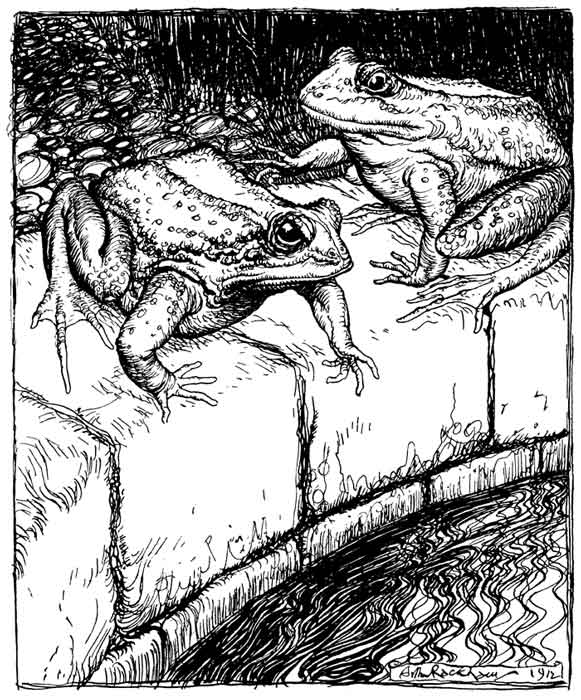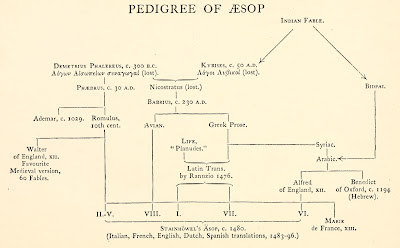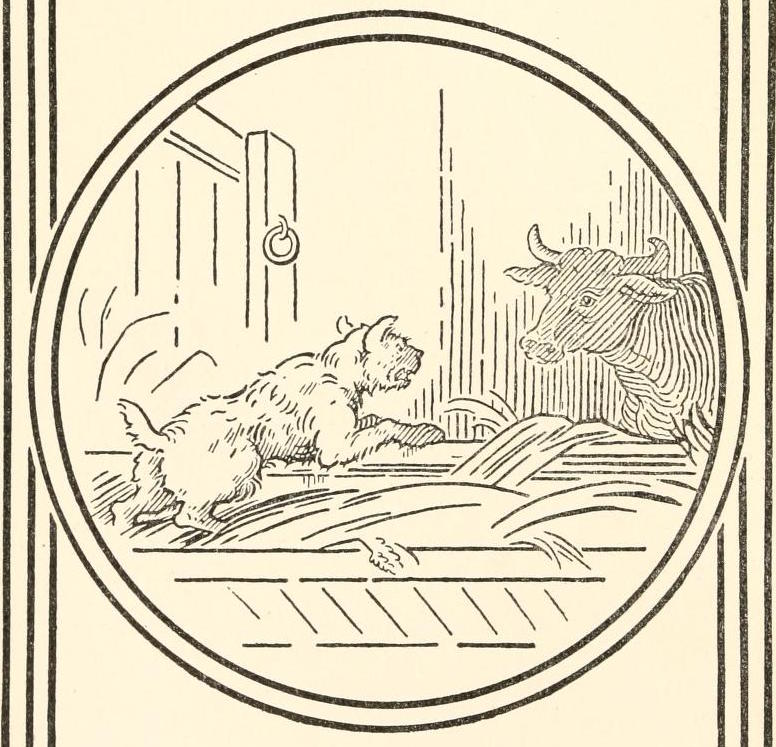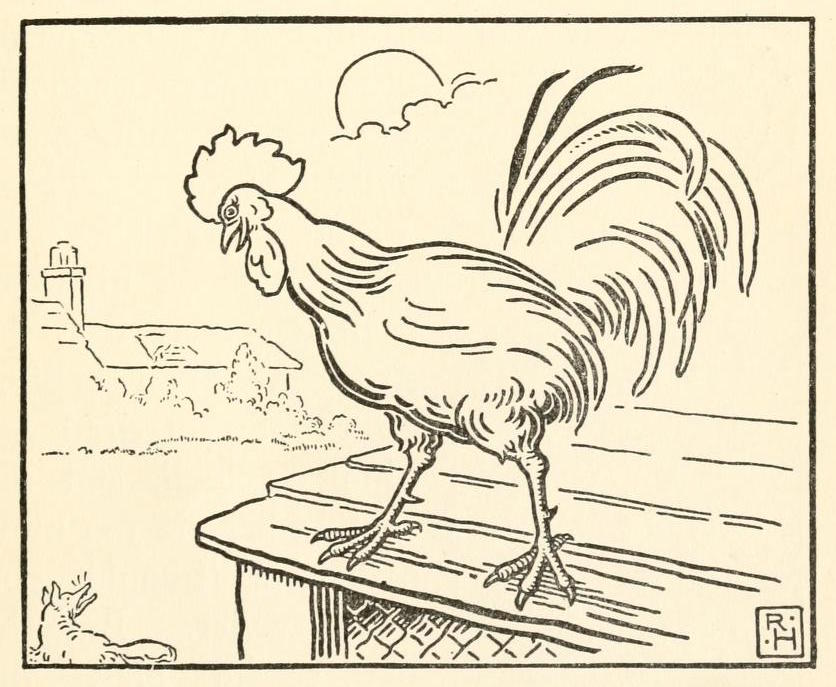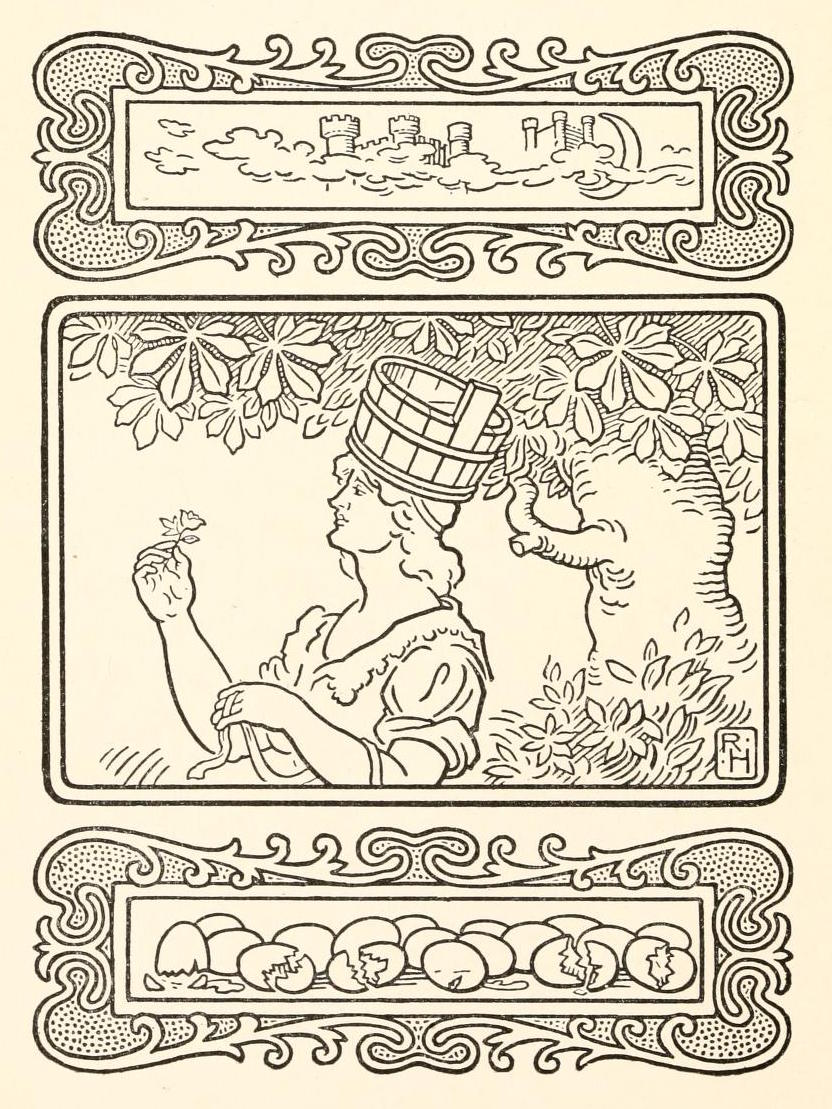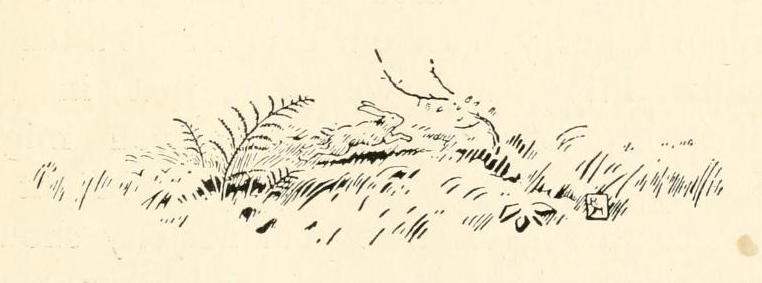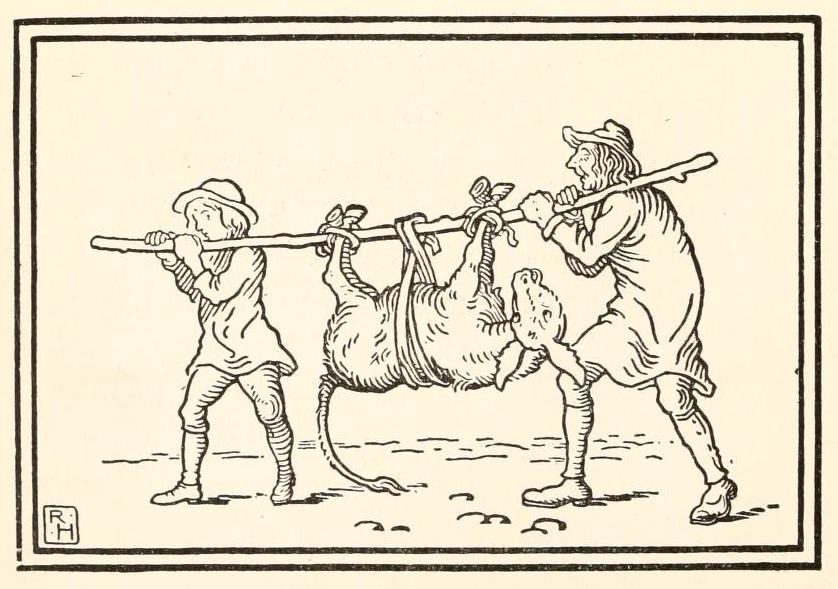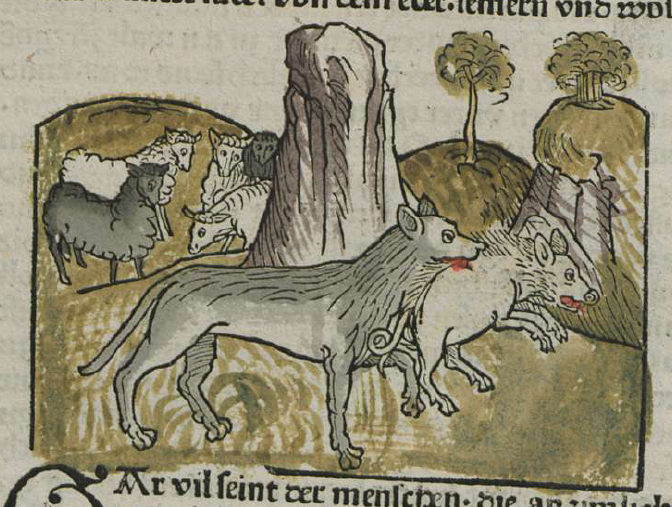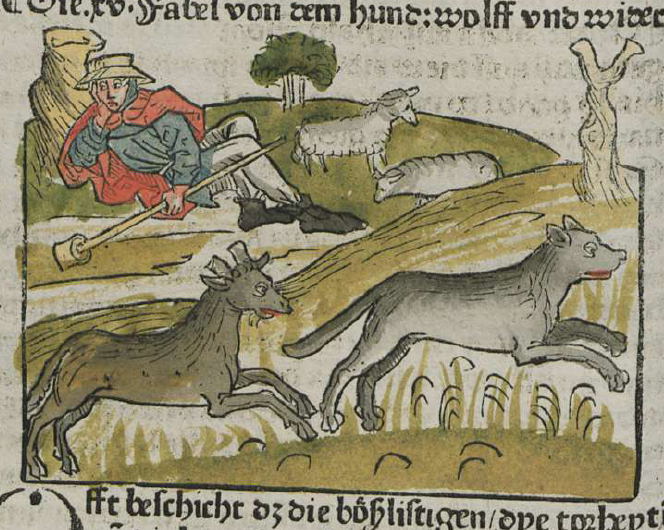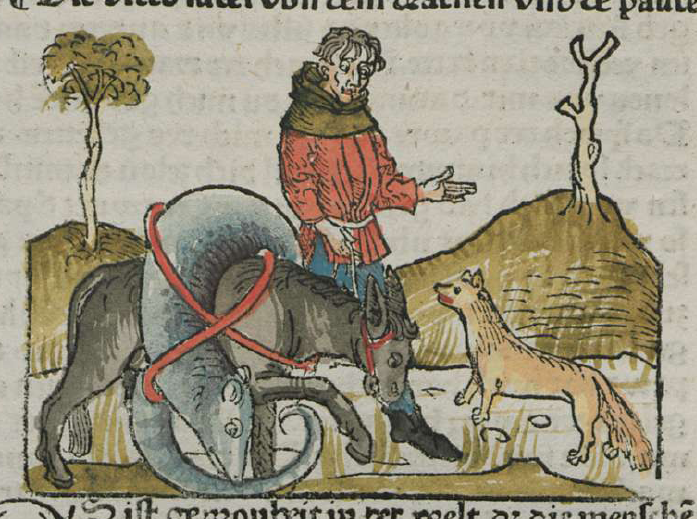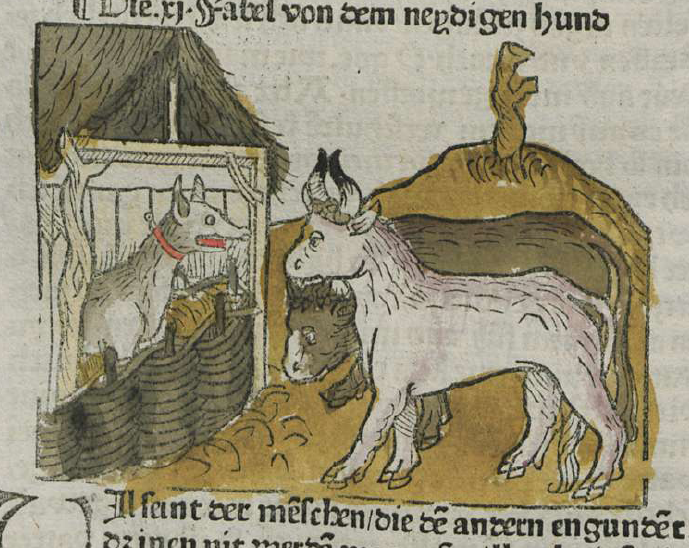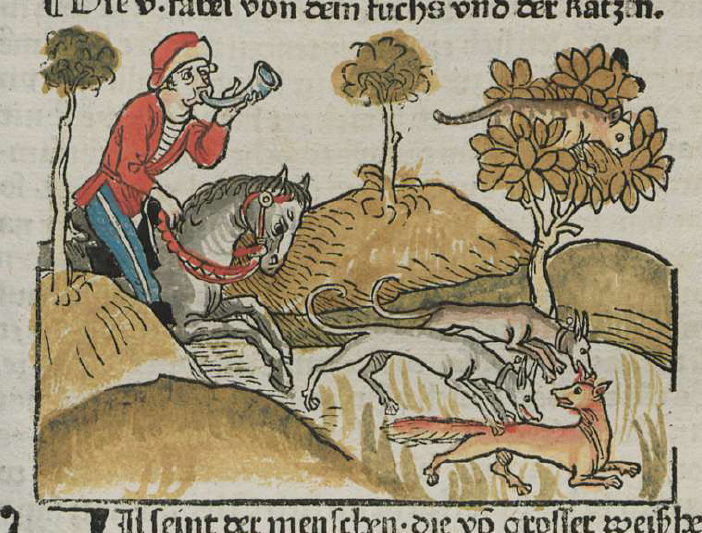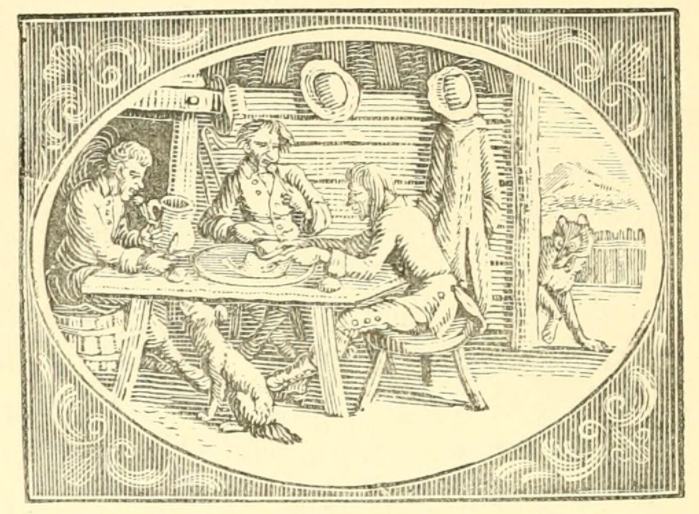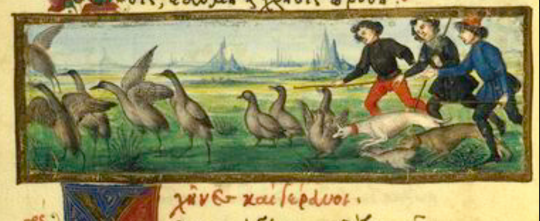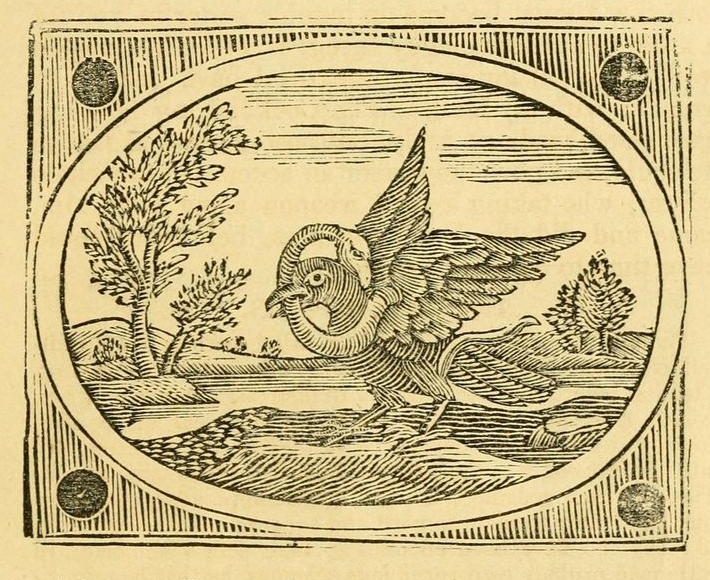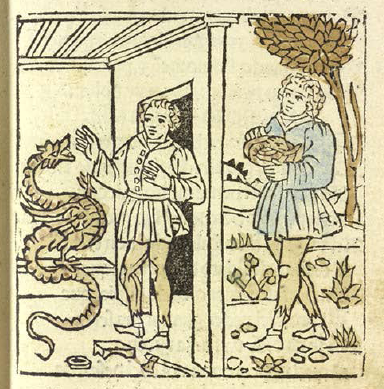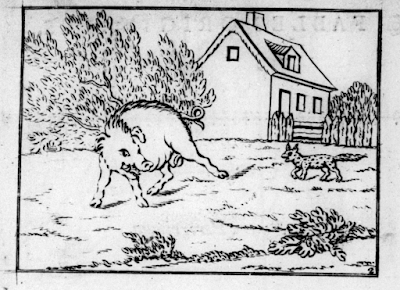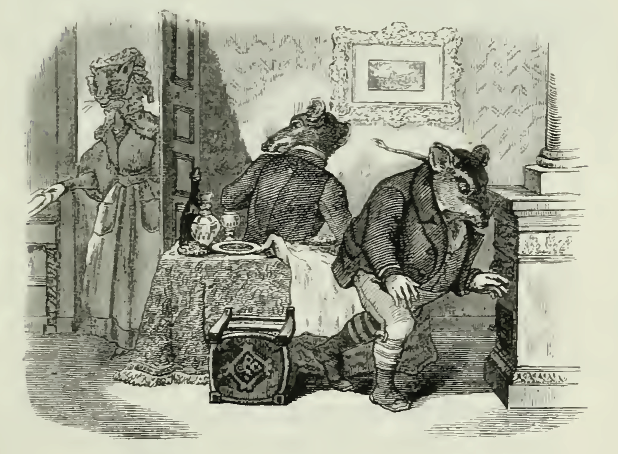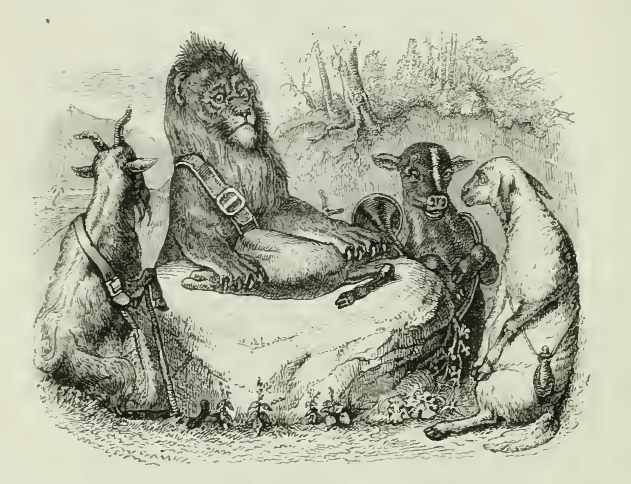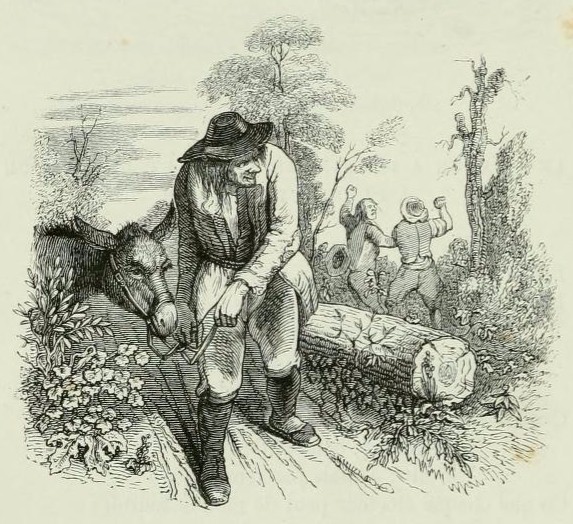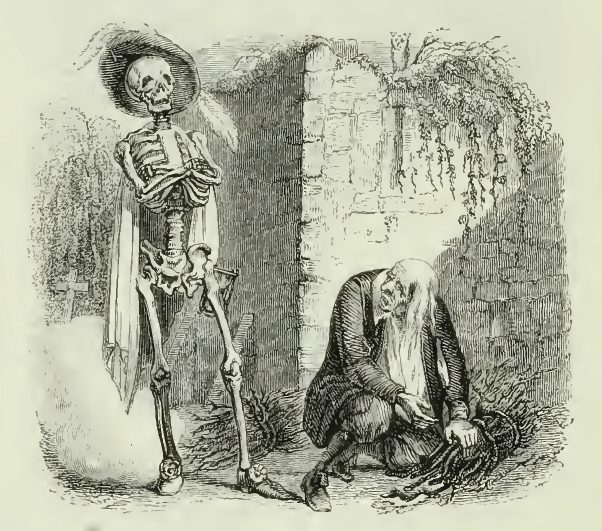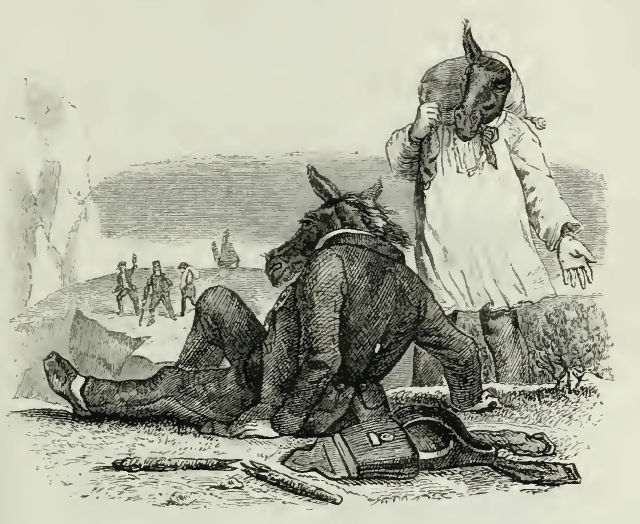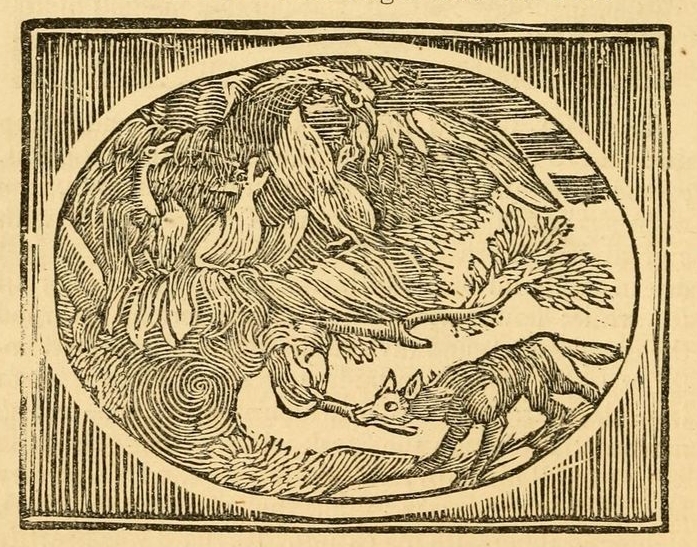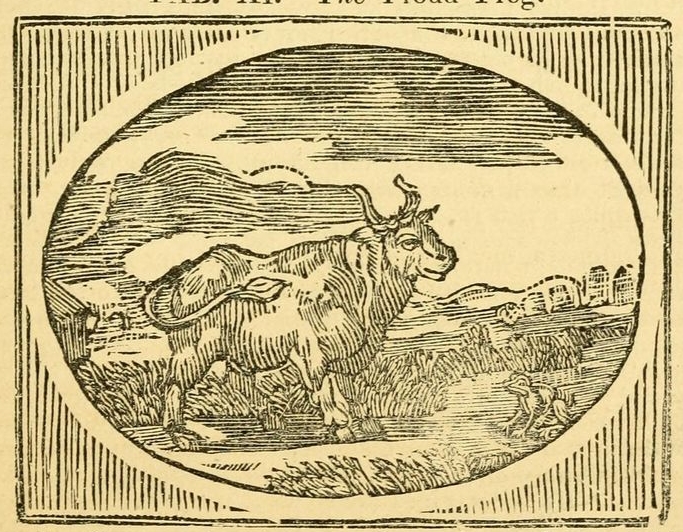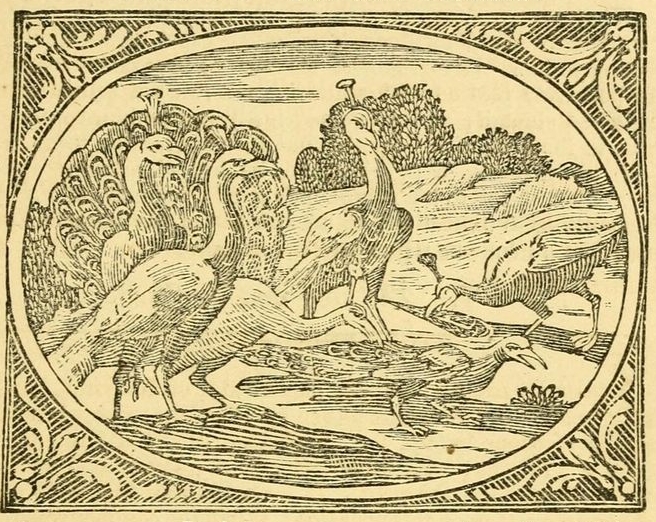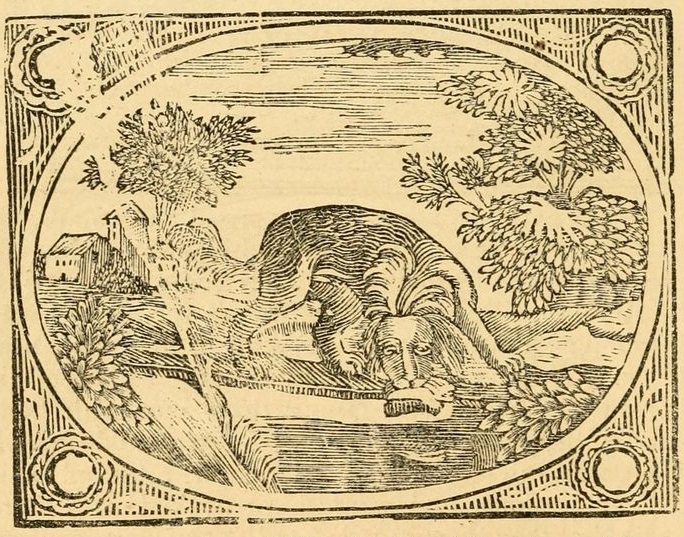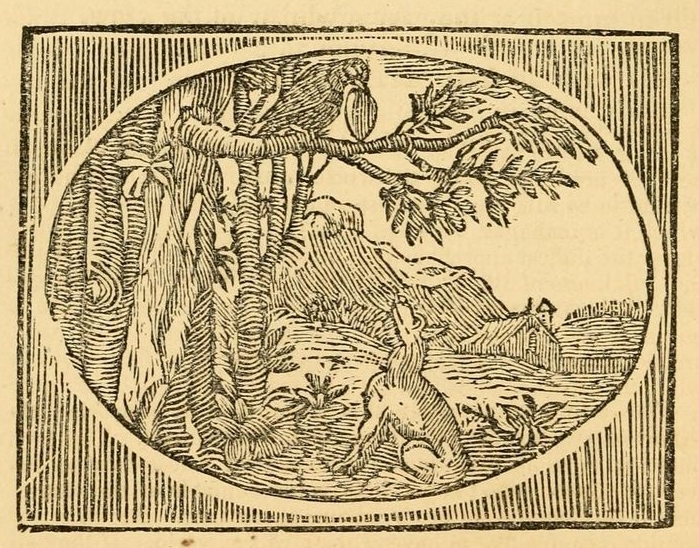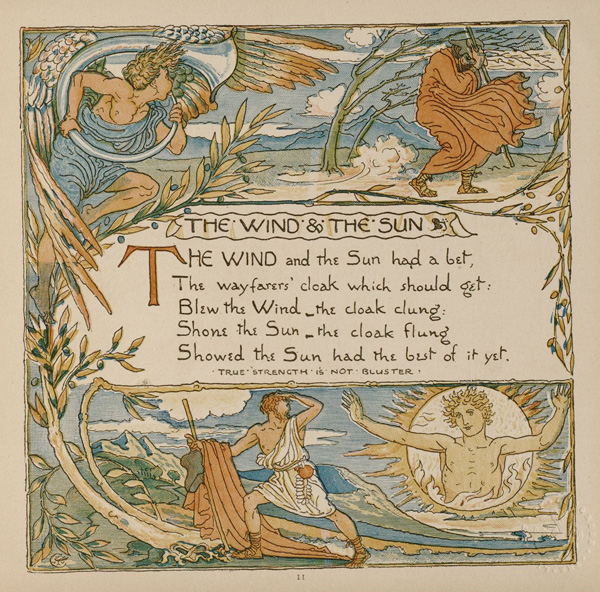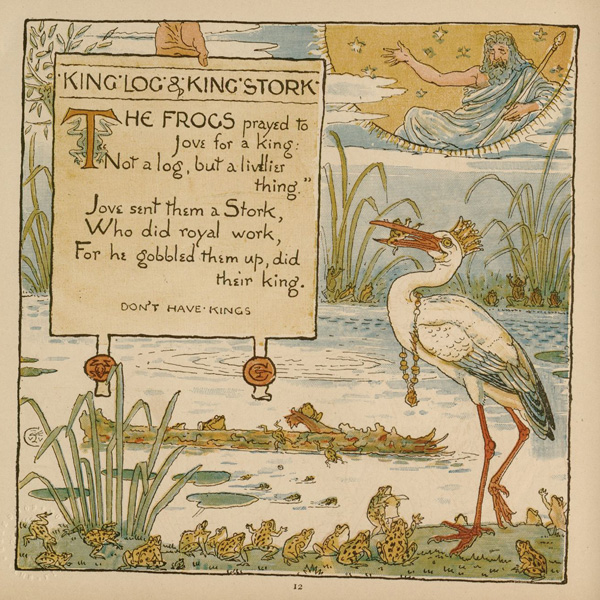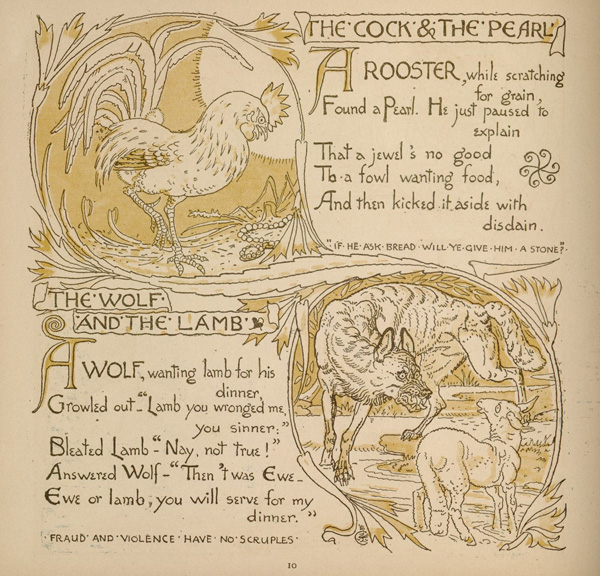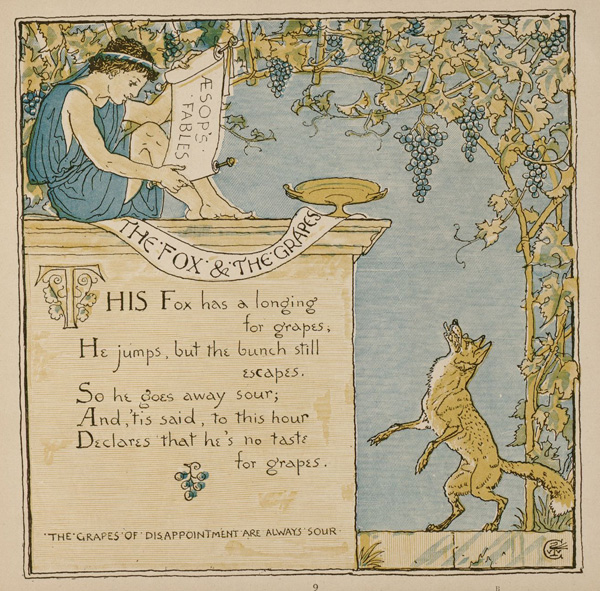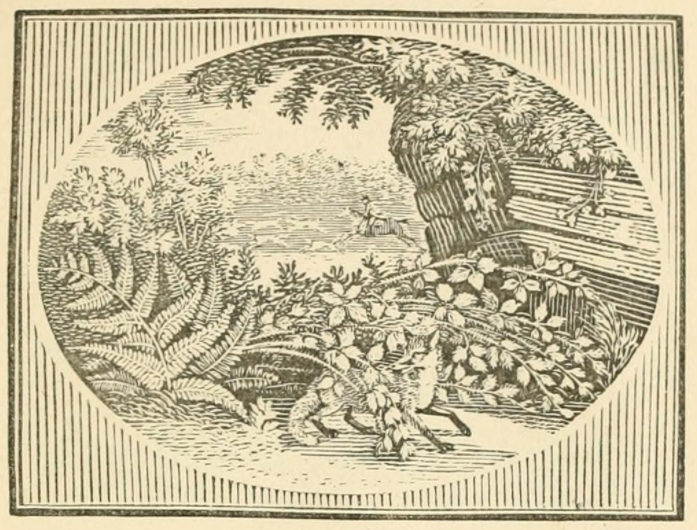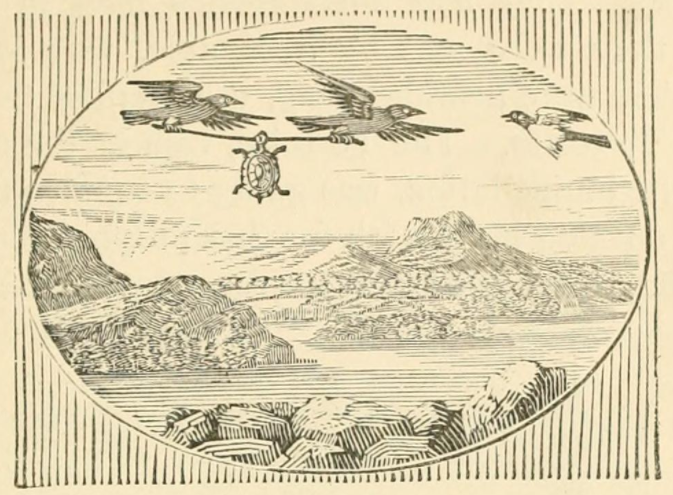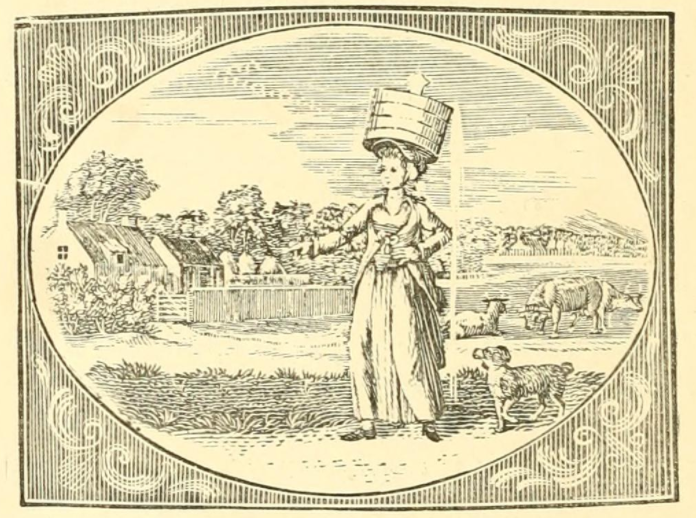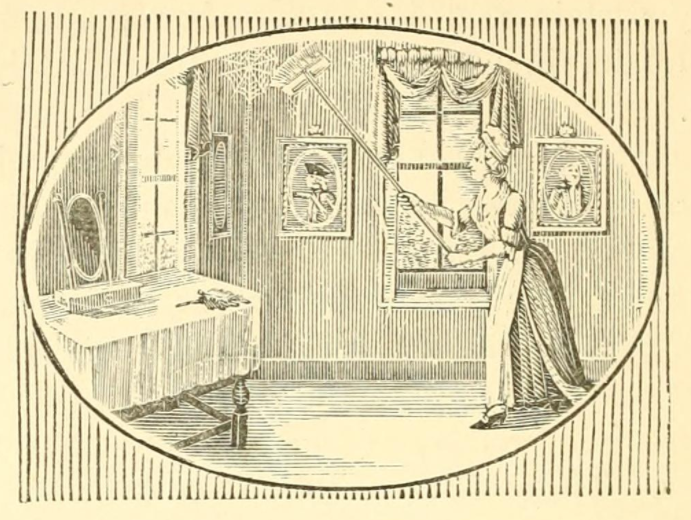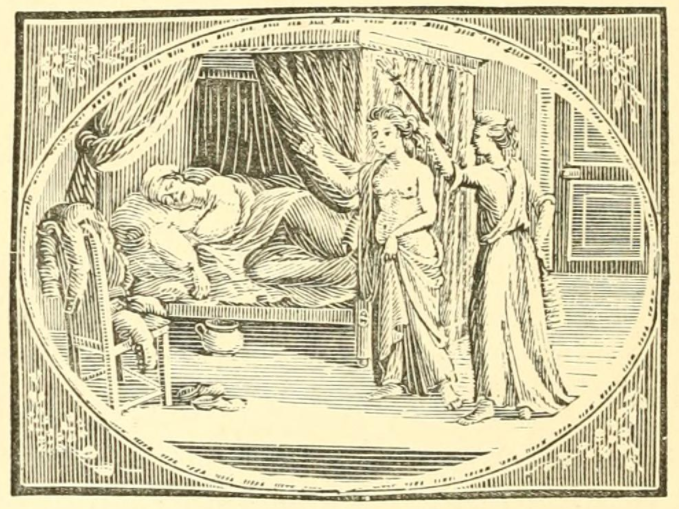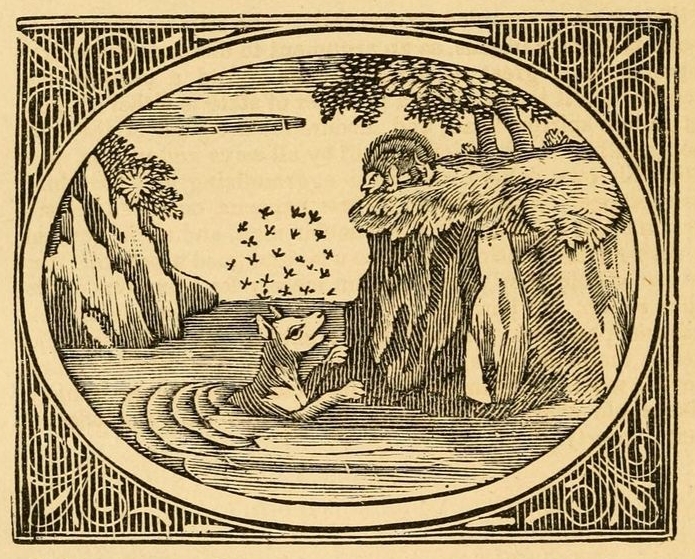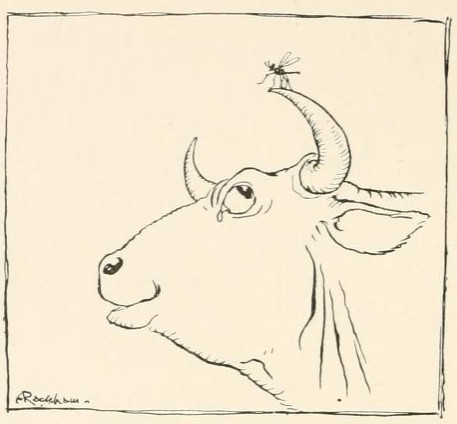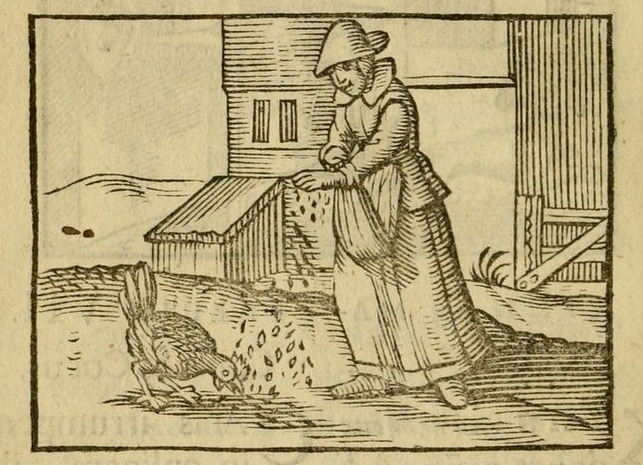Two Travellers find an Oyster
As Two Men were Walking by the Sea-Side, at a Low-water, they saw an Oyster, and they both Pointed at it together: The One Stoops to take it up; the other gives him a Push, and tells him, 'tis not yet Decided whether it shall be Yours or Mine. In the Interim, while they were Disputing their Title to't, comes a Passenger that way, and to him they referr'd the Matter by Consent, which of the Two had the Better Right to the Oyster. The Arbitrator very Gravely takes out his Knife, and Opens it; the Plaintiff and Defendant at the same time Gaping at the Man, to see what would come on't. He Loosens the Fish, Gulps it down, and so soon as ever the Morsel was gone the way of all Flesh, wipes his Mouth, and Pronounces Judgment. My Masters, (says he, with the Voice of Authority), The Court has Order'd each of ye a Shell, without Costs; and so pray go Home again, and Live Peaceably among your Neighbours.
Referees and Arbitrators seldom forget Themselves.
A Mouse and a Kite
A Simple Mouse had the Fortune to be near at hand, when a Kite was taken in a Net. The Kite begg'd of her to try if she could help her out. The Mouse gnaw'd a Hole in't, and set her at Liberty; and the Kite eat up the Mouse for her pains.
Save a Thief from the Gallows, and he'll cut your Throat.
A Wolf and a Porcupine
Your Porcupine and your Hedge-Hog, are somewhat alike, only the Former has longer and sharper Prickles than the Other; and these Prickles he can shoot and dart at an Enemy. There was a Wolf had a mind to be dealing with him, if he could but get him disarm'd first; and so he told the Porcupine in a friendly way, that it did not look well for People in a Time of Peace, to go Arm'd, as if they were in a Seate of War; and so advis'd him to lay his Bristles aside; for (says he) you may take them up at pleasure. Do you talk of a State of War? says the Porcupine, why, that's my present Case, and the very Reason of my standing to my Arms, so long as a Wolf is in Company.
A Gard'ner and a Mole
A Gard'ner took a Mole in his Grounds, and the Question was, whether he should put her to Death or no. The Mole Pleaded that she was one of his Family, and Digg'd his Garden for Nothing: Nay, she Insisted upon't, what Pity 'twas to Destroy a Creature that had so smooth a Skin, and Twenty other Little Pretences. Come, come, says the Gardner, I am not to be Fool'd with a Parcel of Fair Words: You have Nothing for Digging 'tis True; but pray who set you at Work? Is it for my Service d'ye think, to have my Plants and my Herbs torn up by the Roots? And what's your business at last, but by doing all you can for the filling of your own Belly, to leave me nothing to Eat?
'Tis according to the Course of those Kind Offices in the World, which we call Friendship, to do one another Good for our Own Sakes.
A Fox and a Divining Cock
A Fox that had spy'd out a Cock at Roost upon a Tree, and out of his Reach, fell all of a sudden into an Extravagant Fit of Kindness for him; and to Enlarge upon the Wonderful Esteem he had for the Faculties and good Graces of the Bird, but more particularly for his Skill in Divination, and the Foreknowledge of Things to come. Oh (says he) that I were but Worthy the Friendship of so great a Prophet! This Flattery brought the Cock down from the Tree into the very Mouth of the Fox, and so away he Trudges with him into the Woods; reflecting still as he went, upon the strange Force that Fair Words have upon vain Fools: For this Sot of a Cock (says he) to take himself for a Diviner, and yet not foresee at the same time, that if he fell into my Clutches, I should certainly make a Supper of him.
A Fool that will Swallow Flattery, shall never want a Knave to give it him.
